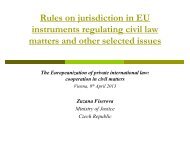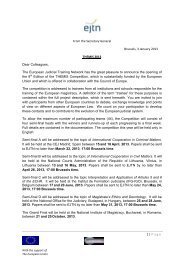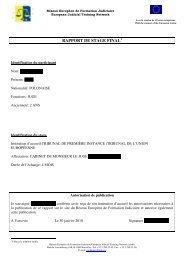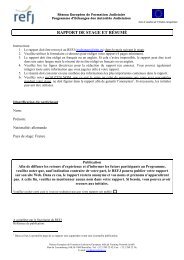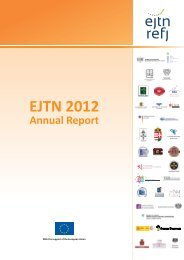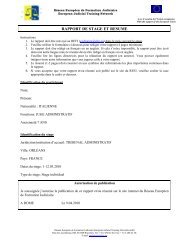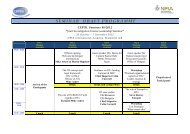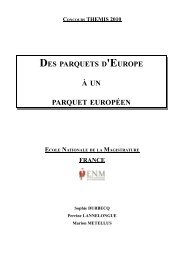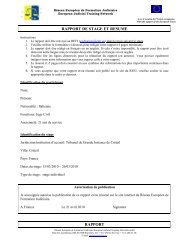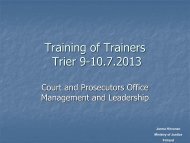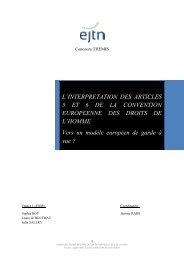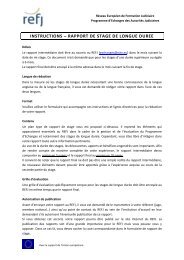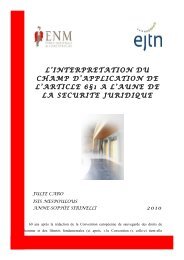European Criminal Justice - EJTN
European Criminal Justice - EJTN
European Criminal Justice - EJTN
- No tags were found...
You also want an ePaper? Increase the reach of your titles
YUMPU automatically turns print PDFs into web optimized ePapers that Google loves.
<strong>EJTN</strong> training guideline in <strong>European</strong> <strong>Criminal</strong> <strong>Justice</strong> - Update 2011In drawing up the 2000 EU Convention, the Council relied on the Council ofEurope’s Convention on MLA in <strong>Criminal</strong> Matters of 1959. The primary aim ofthe Convention was to develop and modernise the existing provision of mutualassistance by extending the range of circumstances in which assistance may berequested, by facilitating assistance to make it quicker and more effective, andby developing new measures to facilitate and further cross-borderinvestigations. It also introduces new techniques applicable for mutual assistance(video and telephone conferences). It adopts rules on data protection.The 2001 Protocol to the EU Convention is an integral part of the Convention of29 May 2000. It provides for supplementary measures such as requests forinformation on banking transactions to combat crime in general and organisedcrime in particular.Due to the complete new quality of cooperation between the member states ofthe EU on the basis of the principle of mutual recognition, mutual legalassistance and mutual recognition are separately presented in these guidelines.Training content:Training on the Council of Europe Convention and its Protocols on mutual legalassistance should include the following fields: Rules for the enforcement of letters rogatory Service of writs and recording of judicial verdicts Appearance of witnesses, experts and prosecuted persons Judicial records Procedure Laying of information in connection with proceedings Exchange of information from judicial recordsTraining on the EU Convention and its Protocol should include the followingfields: Relationship to other Conventions on mutual assistance and the SchengenAcquis Transmission of requests for mutual assistance Requests for certain specific forms of mutual assistance (temporarytransfer of persons held in custody for purpose of investigation, video andtelephone conferences) Interception of telecommunications Control deliveries Infiltration and undercover operations Mutual legal assistance with third states, e.g. the USATraining on the 2001 Protocol will explain the special regulations for bankingtransactions2. Instruments and case law31



